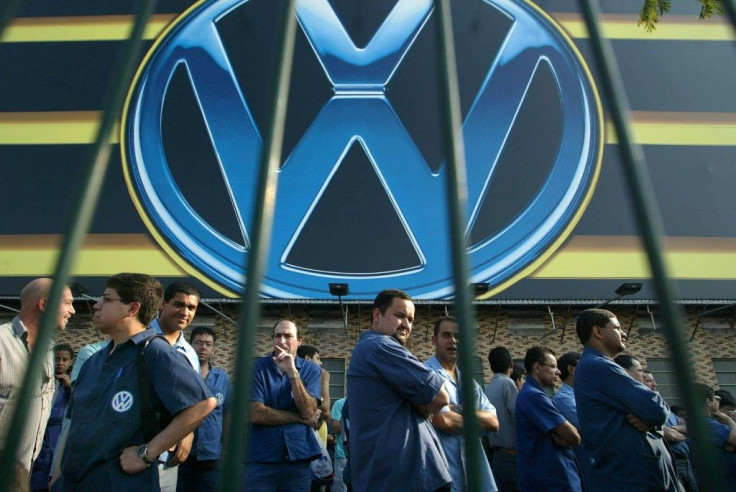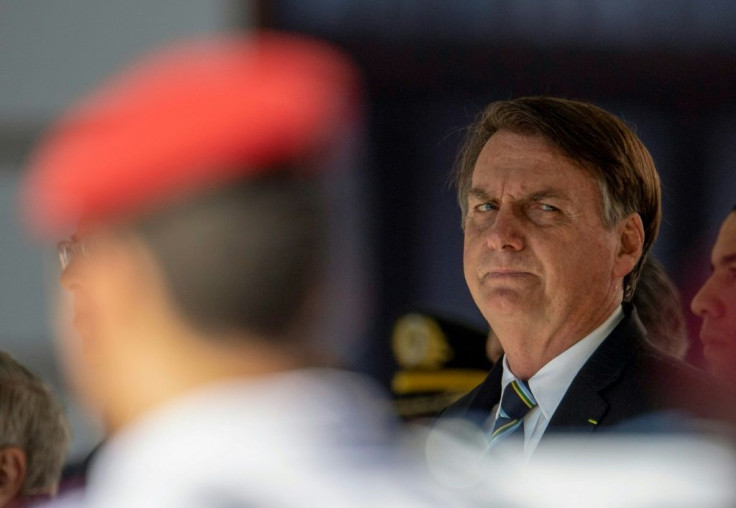VW Pay-out To Brazil Regime Victims Reopens Debate On Justice
Thirty-five years after the end of Brazil's military dictatorship, there has been little justice for the killing and torture committed by the regime -- but an unprecedented deal for carmaker Volkswagen to pay damages for collaborating with the secret police could turn a new page.
Because of an amnesty law enacted in 1979 by the military government (1964-1985), no one has ever been convicted for the human rights violations committed by the regime, which abducted, tortured and killed suspected leftist "subversives" in one of the darkest chapters of the Cold War.
So it was a rare moment of justice when Volkswagen announced Wednesday it had signed a historic deal with state and federal prosecutors in Brazil to pay 36 million reais ($6.4 million) in compensation for its part in the atrocities of that era.
Former workers at the German automaker's Brazilian unit and their families say the company's security office collaborated with the secret police to identify suspected leftist opponents and union leaders, who were then detained and tortured.
The claims, which were being investigated by Brazilian prosecutors in three separate cases, were broadly confirmed by an independent review commissioned by the company in 2016.
Volkswagen is one of more than 120 companies implicated in crimes committed by the regime, according to Brazil's National Truth Commission, which was established to investigate dictatorship-era crimes.

Others include Johnson & Johnson, Pfizer, Esso, Texaco and Pirelli.
"It wasn't just Volkswagen that was involved in persecuting workers in Brazil," said Prudente Mello, a lawyer and former member of Brazil's Amnesty Commission on dictatorship-era crimes who wrote his doctoral thesis on companies' collaboration with the military regime.
"We have lots of other companies that need to be investigated, too, both Brazilian and multinational," he told AFP.
Some in Brazil said they hoped the Volkswagen settlement was just the beginning.
"Whenever you hear that it's impossible to hold anyone to account for the crimes of the dictatorship, remember this," said left-wing Congresswoman Fernanda Melchionna, tweeting a link to the Volkswagen story.
"Will we get more companies joining in the 'mea culpa'? That would be dignified and historic," tweeted the journalist and writer Xico Sa.

The prosecutors who struck the deal hinted as much in the statement announcing it.
"This is unprecedented in Brazilian history and has enormous importance in promoting transitional justice in Brazil and around the world," they said.
"It is impossible to turn the shameful pages in our history without fully uncovering the truth, making reparations to victims (and) holding to account those who committed grave human rights violations.... Unfortunately, Brazil still has a long way to go in that regard."
Brazil is still coming to terms with the abuses committed by the military regime, which was responsible for torturing an estimated 20,000 people and the murder or disappearance of at least 434, according to the National Truth Commission.
The number of victims is lower than under other military regimes in South America such as Chile (3,200 killed) or Argentina (30,000, according to rights groups).
But it does not include hundreds of victims killed in the unrest of the era, including land conflicts and indigenous massacres.
The Volkswagen deal was all the more momentous given that Brazilian President Jair Bolsonaro has sought to rewrite the national memory of the dictatorship since taking office in 2019.
The far-right leader, an army captain during the dictatorship, triggered controversy by saying in 2016 that the regime's mistake was torturing rather than killing its opponents.
He also called 1970s torturer-in-chief Carlos Ustra a "national hero" and last year reinstated commemorations of the 1964 coup that installed the dictatorship.
The VW settlement "carries a lot of weight at a moment like this, in which we are seeing a retreat in the democratization of the country," said Mello.
© Copyright AFP 2024. All rights reserved.





















